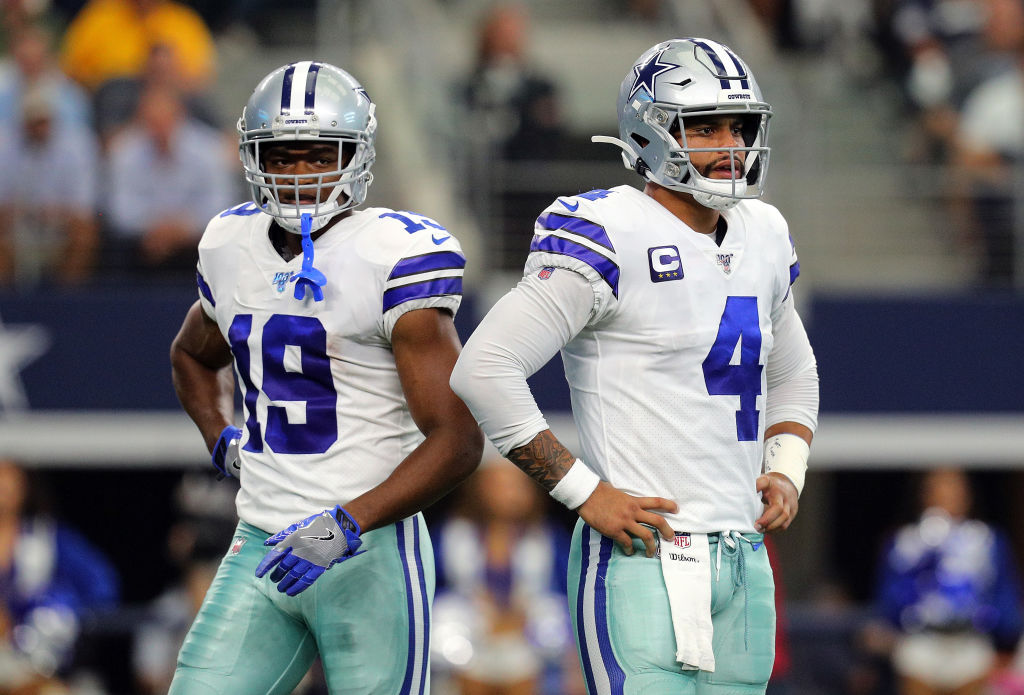NFL
The New NFL CBA Would Cause a Major Problem For the Dallas Cowboys

The Dallas Cowboys may have a big problem on their hands.
If the new collective bargaining agreement between the NFL owners and players is reached soon, the Cowboys will have a lot more to worry about than the new playoff format or a 17-game schedule. A new wrinkle in the proposed CBA would limit franchise tagging, which might make it very difficult for Dallas to keep both Dak Prescott and Amari Cooper if no new contracts are signed.
What is a franchise tag?
The franchise tag, which has been in place since 1993, essentially guarantees that a team can keep an unrestricted free agent on the roster for a year as a new contract is negotiated. There are two types of franchise tags, exclusive and non-exclusive, only one of which can be used per year.
An exclusive franchise tag is a one-year deal that guarantees the player at least the average of the top five salaries in the league at that position or 120 percent of that player’s salary the previous season, whichever is higher. I f a player is tagged exclusively, he can’t negotiate with other teams.
The non-exclusive franchise tag is a one-year deal in which the player receives nothing less than the average of the top five salary cap hits at his position, or again, 120 percent of his previous year’s salary, whichever is higher. The player can negotiate with other teams, but if an offer sheet is signed, that offer can be matched. If the offer is not matched and the player leaves, the original team receives two first-round picks in return.
For instance, ahead of the 2015 season, the Dallas Cowboys chose to franchise tag wide receiver Dez Bryant, as the two sides could not reach a deal before the new league year began, which kept Bryant from becoming a true free agent. They would later agree to a five-year/$70 million deal.
What is a transition tag?
Slightly different from the franchise tag is the transition tag. The transition tag rules as they currently stand state that a player must be offered at least the average of the top 10 salaries at that position or 120 percent of the previous season’s salary, whichever is higher.
A player with a transition tag can still negotiate with other teams but the original team has the first right of refusal. If the original team matches an offer from another team, the player is forced to sign with that club.
Although teams have always been able to use both a franchise tag and a transition tag, the latter is rarely used. However, the transition tag has been a big topic of discussion as it pertains to the Dallas Cowboys this offseason.
How the new CBA would affect the Dallas Cowboys’ offseason plans
The main priority heading into the offseason was signing quarterback Dak Prescott, who officially becomes an unrestricted free agent on March 18, the day the new league year begins. Wide receiver Amari Cooper, another big priority for America’s Team, also becomes a free agent that day. With Dallas not being able to come to terms with either on a new contract, it’s widely believed that the team would use the franchise tag on Prescott and then use the transition tag on Cooper. Teams currently have until March 10 to designate tags.
Unfortunately for the Cowboys, the new CBA would limit teams to just one franchise tag. The new agreement has already been approved by NFL owners and now needs majority approval from the NFLPA. If the new deal is ratified, Dallas would have to tag either Prescott or Cooper, not both.
While the smart money is on the Cowboys tagging Dak Prescott, this new agreement creates a sense of urgency for all involved to lock in new long-term deals. Amari Cooper would likely receive a lot of attention on the open market. The current CBA would have given Dallas a lot more time to negotiate new deals.
Never a dull moment in Big D.











